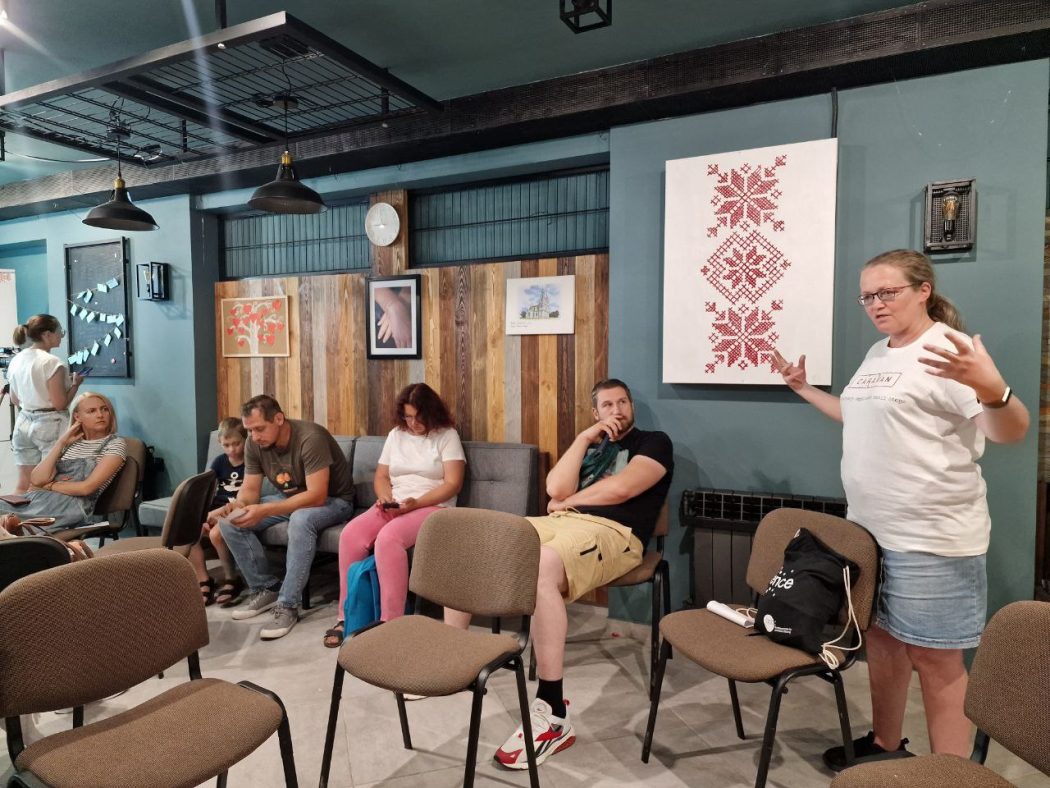The EENCE Citizenship Education Caravan has moved to Poland
The first events of the Caravan in Poland took place in Bialystok and Suprasl. They were attended by representatives of the Belarusian and Ukrainian diasporas, who were displaced here because of political repression and war. EENCE experts organised nine events for them on 22 August with 153 participants!
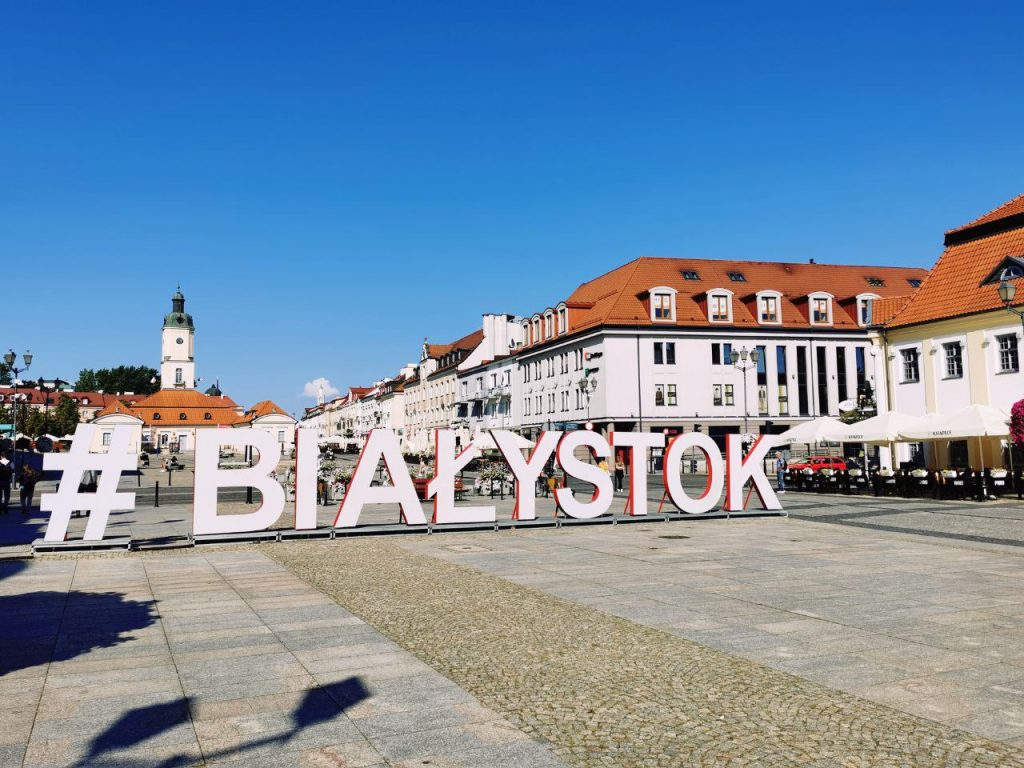
Workshop with a psychologist “Visualisation Board”
Do not underestimate the power of visualisation. According to statistics, those who write down their goals and desires and constantly visualise them mentally, achieve their goals much faster than those who do not.
A visualisation board is a kind of tool that allows you to form your dreams more clearly and make them come true.
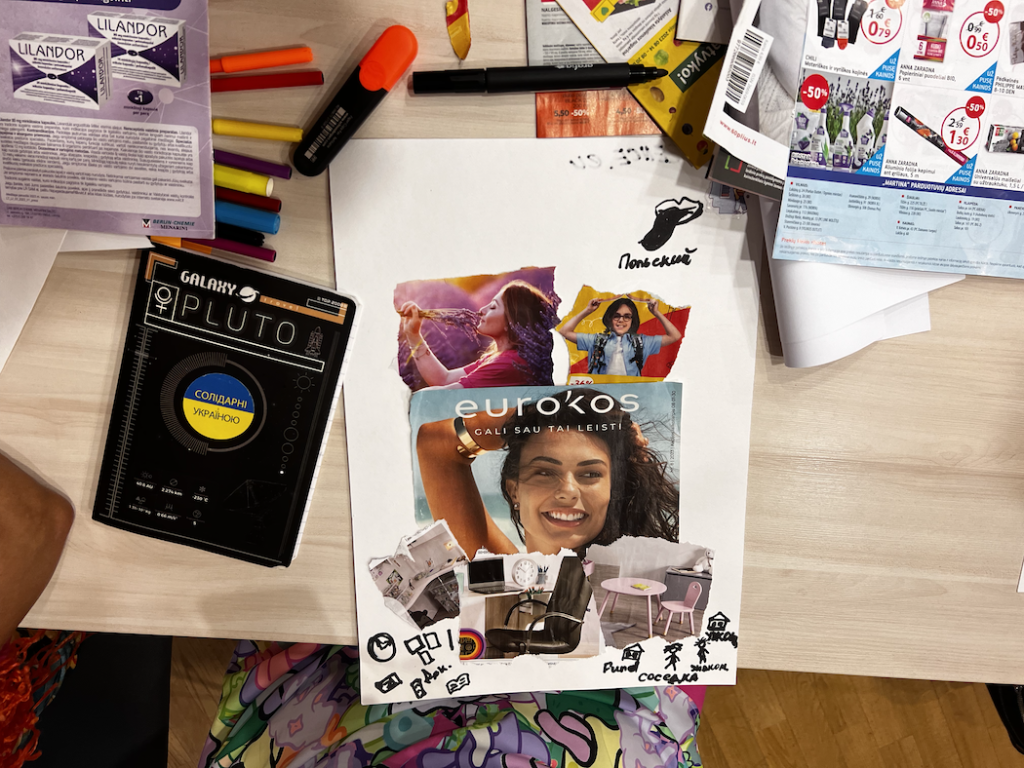
The visualisation board will help to focus on what is really important for you and to feel the image of your dreams.
During the workshop, with the help of a psychologist, the participants were able to get acquainted with goal management, learnt how to form their dreams more clearly, made their wish map and, most importantly, learnt how to achieve their goals and desires.
“A dream is abstract, like pink unicorns. A goal is concrete.”
A quote from one of the workshop participants
Advocacy: Explaining Advocacy “on your fingers” workshop
During the meeting, participants learnt:
- what advocacy is and its types;
- the logic of advocacy;
- why to conduct advocacy campaigns and how to set the goal of an advocacy campaign;
- what advocacy tools are available.
After the workshop, participants walked away with ideas for their advocacy campaigns.
“You don’t have to do something global, concrete small steps are enough. Everyone can do it. It’s simple.”
A quote from one of the workshop participants
Training for trainers “My psychological well-being and peer support in a crisis situation”
At the training, participants learned how to work with adolescents on crisis prevention and the programme of training sessions for adolescents; learnt modern forms and methods of forming psychological well-being of adolescents; and were able to exchange experience with colleagues on psychological support for adolescents in crisis situations.
As a gift from the organisers, the participants received practical materials in electronic form on psychological well-being and crisis prevention, including an author’s methodological manual for teachers and a workbook “My psychological well-being and helping peers in a crisis situation”.
“The fear of danger is so strong that the love of home takes a back seat.”
A quote from one of the workshop participants
Training Conference “Voices of Youth: Belarusians of Poland”
During the training, the participants discussed aspects of successful performance in front of an audience and in front of the camera; they presented the main problems of young people and possible solutions to them.
Afterwards, the participants worked on the scripts of their speeches and had a dress rehearsal, following which they received feedback and recommendations on how to improve their speeches.
Among the issues of concern to young people were the following:
- Past or future: we focus too much on the past, but not enough on the future, what it will be like and how to prepare for it;
- What is good and what is bad: what morality to choose, how to interact with those who have different views and worldviews;
- The problem of Muslims in European society (in particular, relations with the Chechen community, with whom there are often conflicts). How to properly communicate and interact with them;
- Suicidal thoughts and inability to cope with mental health issues;
- Problems with changing residence and adapting to a new place;
- Sex education and lack of information on this topic at school and at home.
Meeting of the Historical Club “Belarusian Emigration: History and Modernity”
Why can we learn from previous waves of emigration?
What do we know about the Belarusan emigration of the 1944 wave? Almost nothing. For a long time, emigrants in the BSSR were portrayed as fugitive fascists in the context of propaganda. Unfortunately, after 2020, history is repeating itself.
Together with the historian Alies Kirkevich, participants sorted through, compared, learnt and sought answers to such questions as:
- What countries did Belarusians go to in the 1940-50s?
- How were they legalised?
- How and what did they earn?
- How did they buy property?
- Were they engaged in Belarusan education and culture?
- Were they involved in politics?
- How did the KGB act against emigrants? How did Belarusians succeed – even abroad?
“There are two Belarus now and they are very different.”
A quote from one of the workshop participants
On the same day, a networking meeting “How Belarusian initiatives can support each other” took place, where participants were able to talk about civic participation, their goals and developed strategies for interaction.
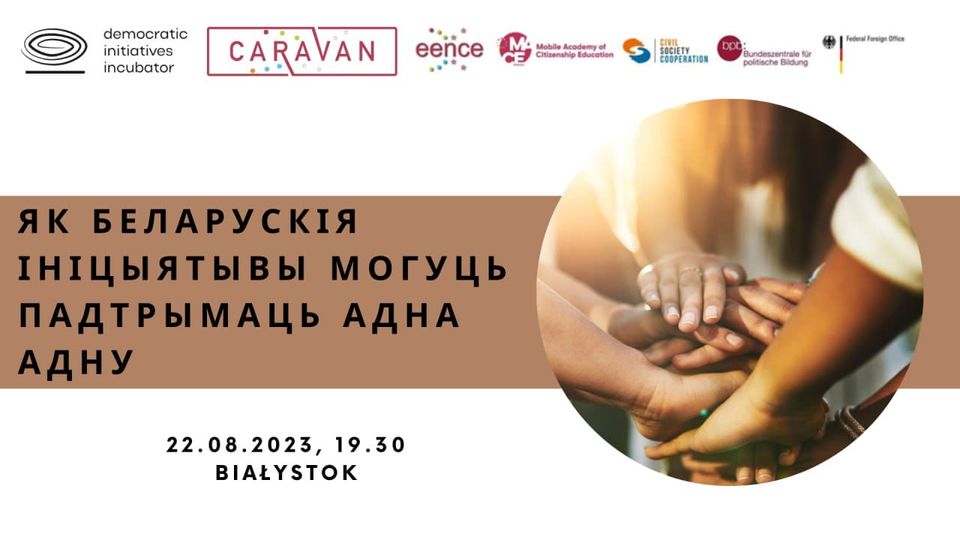
Another day of the Caravan ended in Suprasl.
One of the hotels in this town near Bialystok houses 130 Ukrainians who have been granted asylum in Poland due to Russia’s military aggression.
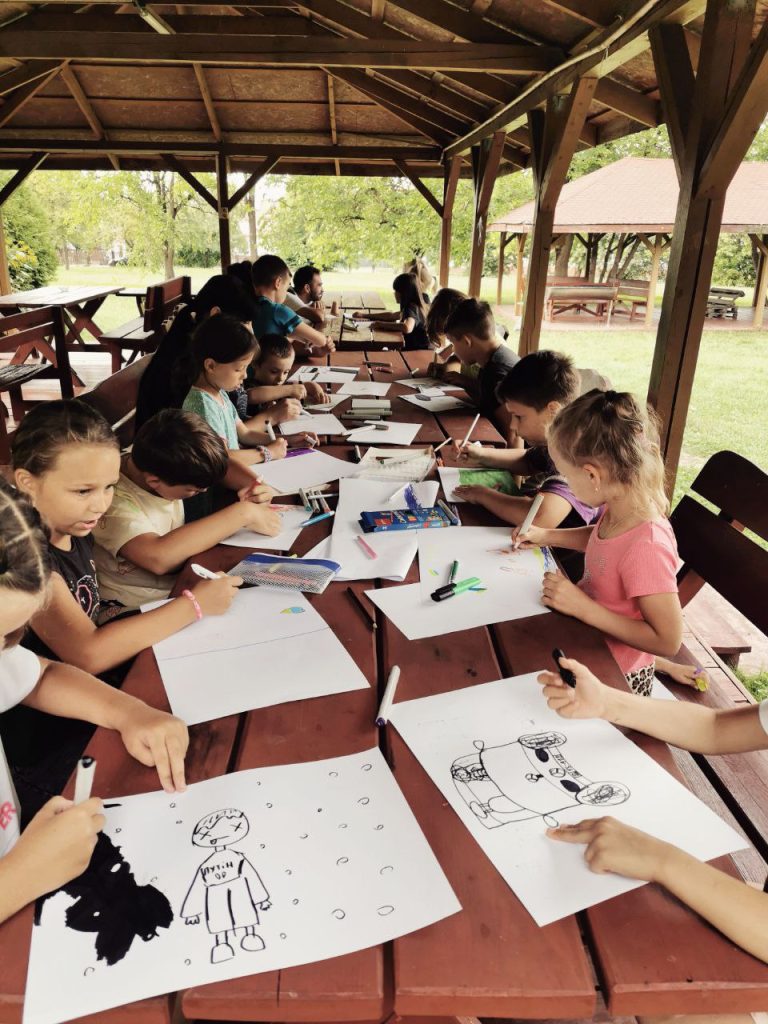
Together with them, the Caravan participants held an integration evening, during which they drew with the children their dreams and searched for the strength to realise them, discussed with their parents the possibilities of integration and small business development, socialised and sang together with a Polish musical group.
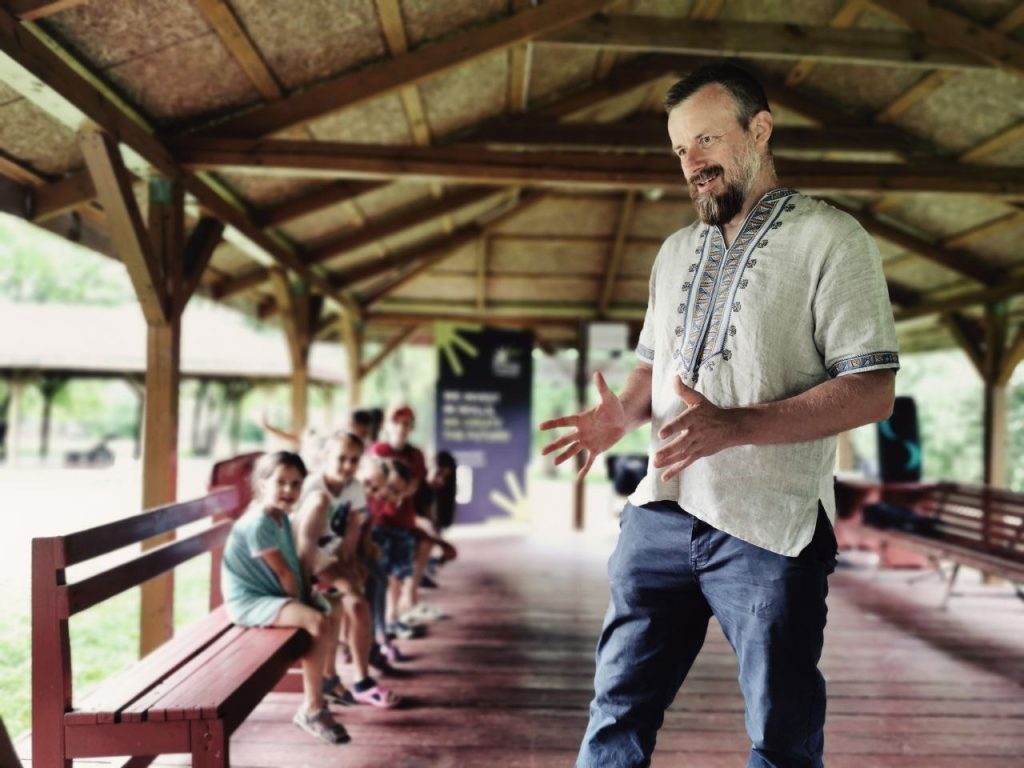
The event is organized by a consortium of EENCE experts and organizations in the framework of the project “EENCE Citizenship Education Caravan”, funded by the Federal Agency for Citizenship Education (Bundeszentrale für politische Bildung / bpb) with funds allocated by the German Federal Foreign Office, program “Enhancing cooperation with civil society in the Eastern Partnership countries and Russia”. The project is implemented by the NGO Incubator of Democratic Initiatives (Ukraine).
Read also:
The next phase of the EENCE Citizenship Education Caravan started in Vilnius
EENCE Citizenship Education Caravan in Lithuania and Poland. Day 2. Vilnius
The EENCE Caravan continues its journey through Lithuania. Day 3. Kaunas and Vilkaviškis
EENCE Caravan team led an online tour of the communist heritage park in Grutas

